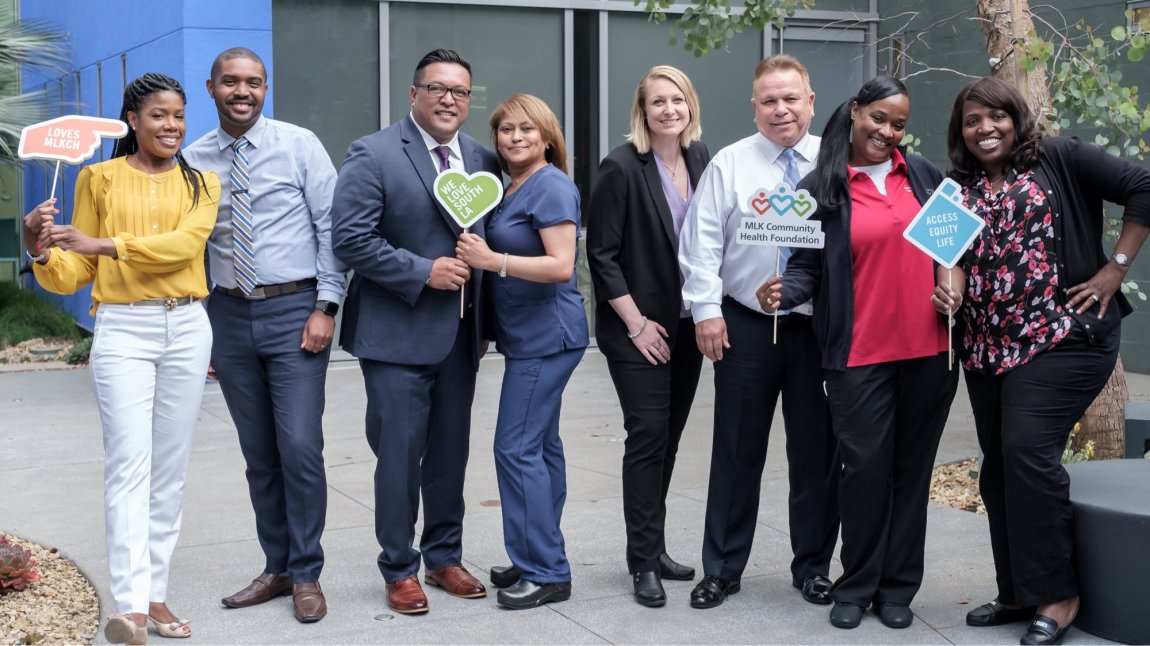Ruben Aguayo, director of facilities and construction, supports MLKCH because he knows, from personal experience, the critical importance of what we do.
Flat on his back, dangling 400 feet above the ground on a construction beam, was not the first time Ruben Aguayo faced death.
Growing up in East LA, one of four children of a hotel housekeeper, the sounds of gunfire were as familiar to Ruben as his pangs of hunger.
As a teenager, he narrowly missed being shot by gang members who targeted a crowd of kids on the street. As a construction worker who dropped out of high school to support his family, he nearly fell to his death—twice.
Then a bit of good advice, strength, and determination born out of years of hardship propelled him away from danger and towards a successful career in healthcare. That career eventually brought him to Martin Luther King, Jr. Community Hospital (MLKCH) as director of facilities and construction.
How he found his way to MLKCH is exactly why he gives back.
This year, Ruben is a member of the leadership team for the MLKCH Gives campaign—an annual staff giving campaign that raised more than $110,000 in 2018 and had record staff participation. Ruben believes in supporting the hospital because of who the hospital serves: those with the fewest resources, those who are struggling.
He believes because he’s been there.
